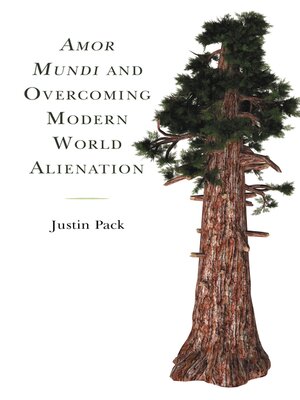Amor Mundi and Overcoming Modern World Alienation
ebook ∣ Religion and Science as a Critical Discourse
By Justin Pack

Sign up to save your library
With an OverDrive account, you can save your favorite libraries for at-a-glance information about availability. Find out more about OverDrive accounts.
Find this title in Libby, the library reading app by OverDrive.



Search for a digital library with this title
Title found at these libraries:
| Library Name | Distance |
|---|---|
| Loading... |
Love in many premodern cultures extended to and permeated the world or even the cosmos, but love in contemporary consumerist society tends to be sexualized, romanticized, and individualized. As a result, ancient visions of ethical love are difficult for moderns to comprehend, especially those rooted in premodern Western thought, or Native American thinkers that describe a love of the natural world that would help us live more responsibly on the Earth.
This volume retrieves the significant narratives of love of the world and the concomitant ethical ramifications of those visions and argues that our age of science and technology has destroyed the ancient, living cosmos of previous visions and replaced it with a mechanical universe. This shift has resulted in various forms of destruction, diminishment, and forgetfulness. Overcoming modern world alienation requires recovering a sense of what it means to love the world and changing our practices to reflect our interconnection with it and our interdependency on it.
This volume retrieves the significant narratives of love of the world and the concomitant ethical ramifications of those visions and argues that our age of science and technology has destroyed the ancient, living cosmos of previous visions and replaced it with a mechanical universe. This shift has resulted in various forms of destruction, diminishment, and forgetfulness. Overcoming modern world alienation requires recovering a sense of what it means to love the world and changing our practices to reflect our interconnection with it and our interdependency on it.







